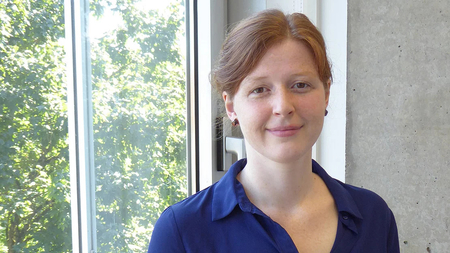What drives me: The influence of '68 on art exhibitions
Kassel doctoral students and their topics | Johanna Wurz.
How did permanent art exhibitions change in the context of the 1968 movement? In my research, I am currently pursuing three new factors in the exhibition practice of the time: I am addressing the pedagogization of the museum business, showing how permanent exhibitions were used as a place for critical discussion, and asking how the everyday world of the newly emerging consumer society influenced the presentation of art.
Up until the 1960s, art was exhibited with little information and in a very object-oriented way. Museum spaces were designed from an aesthetic point of view and had a contemplative character. The motto was: "We exhibit art as it is, and that is how it represents art history." However, the great influence that exhibition designs have on how we perceive and classify art was then newly recognized and discussed.
Around 1970 - and this is the pivotal point of my research - there was a major museum crisis in which the old exhibition practice was called into question. From then on, art was no longer to be presented in a pleasing way, but was to be given a function that went beyond the purely aesthetic. Various demands were formulated: art as a political instrument, for example, to emancipate people. The exhibition design and the information on works of art were intended to encourage critical debate and fulfill an educational mission. The aim was to broaden the museum audience and break down barriers. Art should finally become understandable for everyone and move into the center of society as an instrument. How this was discussed and then concretely implemented in the presentation of art is the core question of my research.
Which of these approaches have endured and where there has been a "backlash" towards former conservative exhibition concepts is another question I am investigating. To this end, I compare exhibition designs that have been particularly discussed - here in Western Europe, but also around the world.
Link:
www.uni-kassel.de

